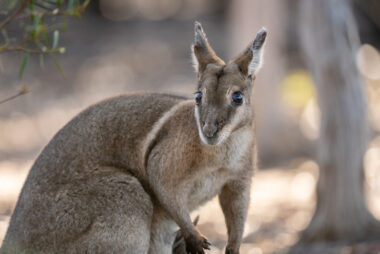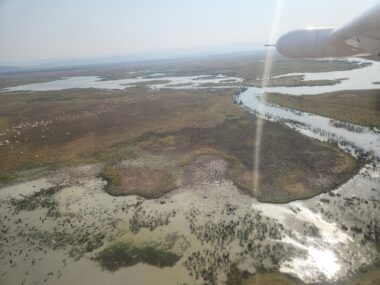FOR IMMEDIATE RELEASE
NEW POLLING REVEALS Australians are increasingly concerned about being forced to relocate away from their homes and local communities, after extreme weather records were smashed in almost every state this summer.
|
Polling by the Climate Council identified:
|
Dr Grant Blashki, practising General Practitioner and Climate Council Fellow said:
“This summer, communities across the country were hurtled between dangerous downpours and record-breaking temperatures. It’s understandable that Australians are anxious about what lies ahead for their homes and their families.
“The fear people have of being forced to relocate is not unfounded. This polling tells us that one in ten of us have already uprooted our lives due to extreme weather. This experience goes beyond moving house, it means losing the wonderful support and connections that communities provide.
“Climate-fuelled fires and floods present an almost impossible choice for families who are already under severe mental stress after experiencing an extreme weather event: Do they stay in a home with ongoing risks of another fire or flood, or do they relocate?
“Relocating is an extremely difficult call for families to make, and one that reverberates throughout entire communities.”
Major General Peter Dunn, member of Emergency Leaders for Climate Action and former Commissioner for the ACT’s Emergency Services Authority said:
“Communities in Australia are grappling with a ceaseless onslaught of extreme weather events, fuelled by climate pollution. Many have lost their homes, some have even lost loved ones, and their frustration at the lack of resources to prepare and recover from these disasters is palpable.
“For too long, our leaders have given too much attention to the ambulance at the bottom of the climate change-created cliff. By providing the resources people need to prepare for extreme weather, we can reduce the risks that communities face and save lives and homes that would otherwise be lost.
“After a summer of climate whiplash, now is the time to enlist communities and give them what they need: information about the risks they face, places to gather and make plans for when disasters strike, and resources and education on how to keep one another safe. Now is the time to make decisive moves towards leaving fossil fuels behind, to protect our kids and grandkids from living through even worse fires and floods.”
Polling was conducted by YouGov with a representative national sample of 1,568 Australians. The polling questions were designed to understand the impact of climate change and extreme weather events on the wellbeing of Australians. A summary of the polling is attached, and a spreadsheet of the polling results in full is available on request.
For interviews please contact Climate Council media team on [email protected] / 0485 863 063 or Lydia Hollister-Jones on 0448 043 015 / [email protected].
The Climate Council is Australia’s leading community-funded climate change communications organisation. We provide authoritative, expert and evidence-based advice on climate change to journalists, policymakers, and the wider Australian community.
For further information, go to: climatecouncil.org.au
Or follow us on social media: facebook.com/climatecouncil and twitter.com/climatecouncil



